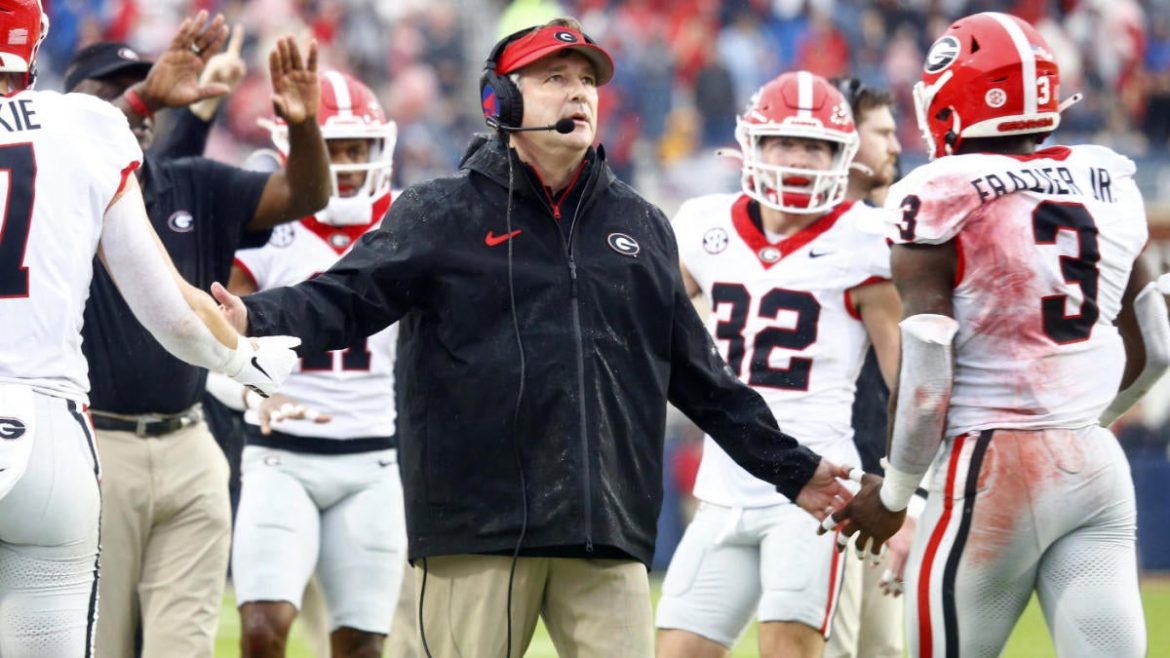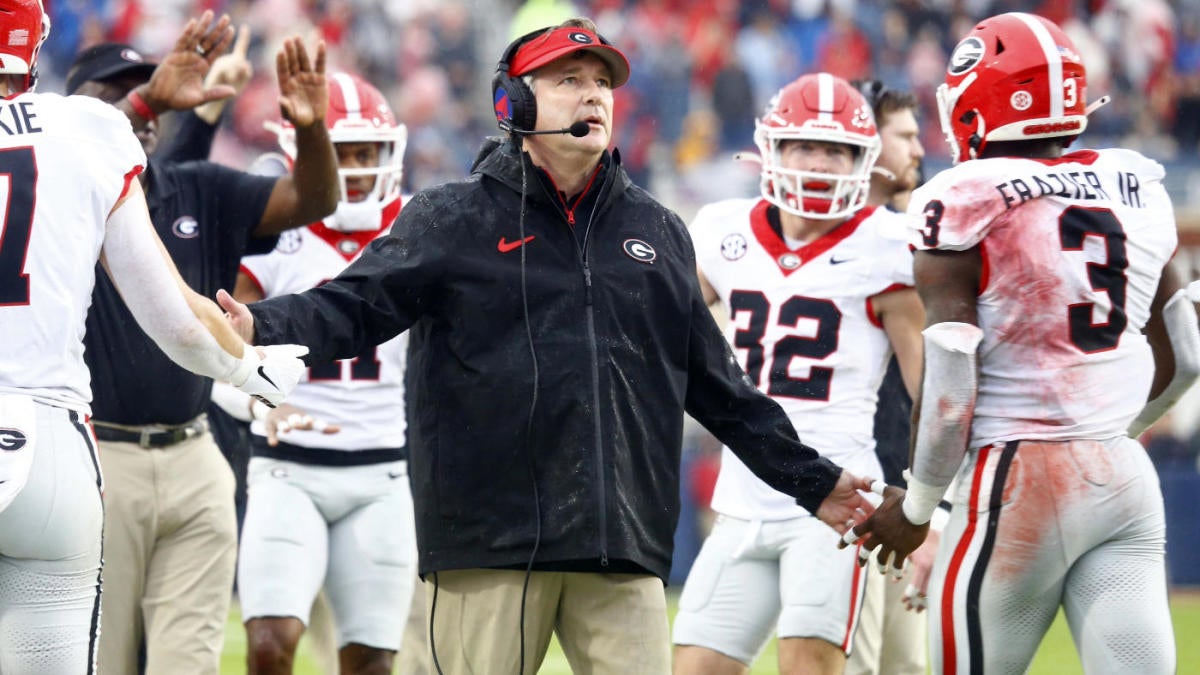The Ongoing Debate on the NCAA Transfer Portal: Kirby Smart’s Perspective and Its Impact on College Football
The NCAA transfer portal, a transformative development in college athletics, especially football, has sparked intense discussions among coaches, players, and analysts alike. Georgia’s head coach Kirby Smart emerges prominently in this ongoing conversation, articulating concerns and calling for reforms that reflect broader challenges the sport faces today. His views not only illuminate the current landscape of player transfers but also intersect with issues like NIL (Name, Image, and Likeness) deals, recruiting strategies, and team control dynamics. A deeper look into Kirby Smart’s stance offers valuable insights into the complex puzzle of college football’s future.
The Transfer Portal: A Double-Edged Sword for SEC Coaches
Kirby Smart and many other Power Four coaches emphasize the paramount need for clarity and reform regarding the NCAA transfer portal window. The current system, although designed to empower players by allowing easier movement between schools, has introduced significant uncertainties for coaching staffs. Smart’s public calls highlight a desire for a standardized and restricted transfer window to restore some equilibrium.
One of the core appeals Smart and his peers stress is implementing a defined, possibly shortened, transfer portal window. The American Football Coaches Association’s proposal to limit the portal to a 10-day period in early January (post-bowl games), eliminating the spring window, is a manifestation of these calls. Coaches argue that such a schedule would reduce the chaos of year-round roster fluctuations, allowing for effective recruiting and roster planning.
Kirby Smart’s Perspective: Challenges and Solutions
The Struggle for Roster Stability
Smart’s frustrations often center on the loss of control coaches experience due to unpredictable player movement. The transfer portal’s current openness means players can enter at various times, complicating scholarship allocations and succession planning. For a program like Georgia, which has recently contended for and won national championships, losing key athletes to the portal—particularly after NFL Draft declarations—creates immediate gaps.
As Smart rebuilds his squad ahead of the upcoming seasons, he actively dives into the portal to fill voids, representing a reactive approach that consumes recruiting resources and adds a recruitment layer beyond traditional high school scouting. This dynamic fuels concerns about sustainability and long-term team synergy.
Impact of Third-Party Influences and NIL Deals
Another dimension Smart spotlighted is the role of agents and intermediaries exploiting a loophole—engaging in backdoor negotiations and securing NIL deals for players before they even officially enter the portal. This practice undermines the spirit of fair recruitment and adds a disturbing commercial layer that complicates the college experience for athletes and destabilizes programs.
Smart has been vocal about this problem, describing such tampering as “disturbing” and “upsetting,” contributing to an “excruciating” coaching environment. His comments suggest a deeply troubled ecosystem that demands regulatory oversight to ensure transparency and fairness.
The Broader Context: Collegiate Athletics and the Transfer Portal
Recruiting Reconsidered
The ease of transferring has also shifted the traditional high school recruiting paradigm. Coaches like Smart must now factor in portal activity, balancing the anticipation of incoming transfers with the development of long-term talent from high school commitments. This balancing act changes scholarship strategies—whether to reserve spots for potential transfers or focus entirely on recruits who commit for the full collegiate term.
Cultural and Philosophical Shifts in Coaching
Smart’s candid remarks about “deterioration of football” and the need for a “fix” indicate deeper concerns beyond logistics. The transfer portal symbolizes a cultural shift in player-coach relationships and program control. With players empowered to move more freely, coaches feel pressured to adapt their leadership and engagement strategies to retain talent and maintain discipline, all while navigating NIL complexities.
The Pushback and Controversies
While Smart’s calls have resonance, not all voices align. Some analysts and commentators argue against overly restrictive transfer policies, viewing player mobility as a player-rights evolution that counters past NCAA rigidity. The debate intensifies when critics frame Smart’s concerns as resistance to change or protectiveness over program stability.
Even within this friction, Smart is clear that he’s not advocating for abolition of the portal but rather for structural reforms that bring predictability and fairness. His approach underlines a middle path: preserving player freedom while restoring order to recruiting processes.
The Stakes for Georgia and College Football Programs
Georgia’s national prominence raises the stakes for this debate. As a top-tier program, Georgia exemplifies successes and vulnerabilities linked to the transfer portal. Smart’s latest recruiting tactics—embracing the portal to counterbalance NFL draft losses—highlight a strategic evolution but also evoke questions about the sustainability of such models.
The potential for team disruption, locker room culture shifts, and strained coaching dynamics are concerns that resonate beyond Georgia, touching all SEC programs and the broader NCAA football landscape. Smart’s public engagement signals the urgency coaches feel in resolving these challenges ahead of upcoming seasons.
Conclusion: Towards a Balanced and Sustainable Transfer Landscape
Kirby Smart’s insights reveal a transfer portal at a crossroads—empowering players yet complicating coaching strategy, recruiting, and team building. His call for clarity and reform reflects significant operational and cultural upheavals driving the college football world. As the NCAA and its member conferences contemplate adjustments to the portal’s timing, rules, and oversight—especially related to third-party involvement and NIL—the goal remains to strike a balance.
Achieving a transfer system that respects both player mobility and coaching stability will be a defining challenge of the next era in college football. Kirby Smart’s advocacy shapes this conversation, shedding light on the urgent need for policies that safeguard the integrity of competition and the welfare of athletes and programs alike. The path forward requires negotiation, innovation, and a willingness to recalibrate long-held norms in service of a transparent and equitable collegiate football future.





